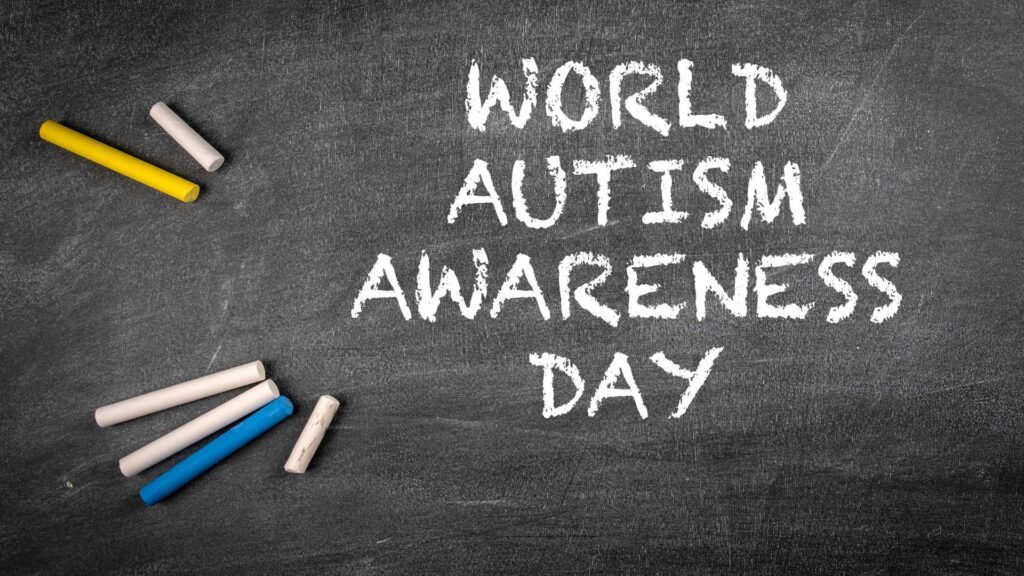Table of Contents
Why do we celebrate World Autism Awareness Day?
The pursuit of a more inclusive world for individuals with autism is an ongoing challenge globally. Despite advancements since the 1960s and 1970s, when autism first gained visibility, the neurodiverse community continues to encounter discrimination within health, social, educational, and employment systems. Why do we celebrate World Autism Awareness Day? At ABA Centers of New Jersey, we aim to share the history spanning over 60 years behind this day, observed annually on April 2. This day promotes advocacy for the rights and well-being of individuals diagnosed with autism spectrum disorder (ASD), highlighting the involvement of global organizations such as the United Nations in this cause.
As committed advocates for autism, we strive to deliver professional and supportive autism services across Woodstown, Trenton, Paterson, and other areas in New Jersey. For more details about our autism services, click here.
Understanding the Origins of Autism Awareness
Remarkably, the term “autism” was only recognized about a century ago. It was not until the 1960s that researchers began to study the condition more extensively, enhancing visibility for a disorder previously met with little response or support. During those early years, a lack of awareness about autism often led to overlooking the unique needs of individuals on the spectrum, which restricted affected families’ access to necessary resources.
In the 1990s, several organizations committed to autism support emerged, aiming to foster greater understanding and support for the disorder. Notable among these was the Autism Society of America, co-founded by esteemed autism researchers Bernard Rimland and psychologist Ivar Lovaas. Lovaas was also a pioneer in studying Applied Behavior Analysis (ABA), now a foundational treatment for managing some of the most challenging symptoms of autism. The establishment of National Autism Awareness Month in 1995 by the Autism Society of America was a significant milestone, encouraging more families and individuals with ASD to express their needs and seek societal support. This recognition represented the dawn of a new era of awareness.
The United Nations amplified this momentum in 2002 by unanimously declaring World Autism Awareness Day, thereby recognizing autism as a global concern requiring international focus. While the declaration of this day brought increased attention to autism, it underscored the persistent need for nations worldwide to incorporate support services for the neurodiverse community into their developmental agendas.
Enhancing Autism Awareness
Despite the establishment of World Autism Awareness Day, there remains a pressing need to bolster support for individuals with autism, their families, and advocates. To address this challenge, the United Nations Department of Public Information has organized events and initiatives aimed at commemorating this significant day and enhancing understanding of the condition.
In 2006, the United Nations clearly demonstrated its dedication to fostering acceptance of autism by observing World Autism Awareness Day for the first time at its headquarters in New York. This landmark event saw UN officials, experts on autism, and community members highlight various unmet needs, motivating numerous countries worldwide to implement measures supporting individuals with autism and promoting global awareness of the condition.
In 2008, the UN ratified the “Convention on the Rights of Persons with Disabilities,” aiming to expand support and facilitate diagnosis worldwide. This Convention acknowledged the rights of persons with disabilities, including those with autism, to education, employment, and complete social integration. The endorsement of this Convention by 170 countries represented a crucial advancement in advocating for the rights and inclusion of individuals on the autism spectrum globally.
In 2009, Autism Speaks, a non-profit organization focusing on autism awareness, initiated the “World Autism Awareness Day” campaign, calling on governments to enhance support services for autism. These services include early intervention, access to education, employment opportunities, and funding for research.
By 2013, the United Nations had adopted the Autism Resolution, which called for measures to address the needs of individuals with autism. This resolution included promoting early diagnosis and intervention, ensuring broad access to educational opportunities, supporting employment, and advancing research into the condition.

Autism Awareness in 2024
This year, on April 2, the United Nations plans to host a virtual event to mark World Autism Awareness Day, underscoring the critical need to increase public awareness about the condition. For the first time, the observance will aim to present a comprehensive global perspective on the needs as seen through the eyes of individuals with autism from various regions. Participants will share their diverse experiences, emphasizing the role of the Sustainable Development Goals (SDGs) in empowering people with autism to achieve their full potential.
Meanwhile, the New Jersey State Department of Education has declared that every April, schools throughout the state will engage in activities both within schools and the wider community to honor Autism Awareness Month. This endeavor supports and recognizes students with ASD and offers an invaluable chance for educators, students, and parents to deepen their understanding of autism and its impact on daily living.
Advancing Autism Acceptance: ABA Centers of New Jersey
The quest for autism acceptance is an ongoing journey that, despite significant progress, demands persistent effort. As the global incidence of autism diagnoses rises, the emergence of organizations dedicated to serving the neurodiverse community is crucial.
At ABA Centers of New Jersey, our unwavering commitment lies in offering prompt access to diagnostic and evaluation services for autism, alongside early intervention and ABA therapy for children and adolescents, including in educational settings. We understand the critical role that professional support plays in nurturing the unique abilities of individuals with autism and fostering their active engagement in society.
In observance of Autism Acceptance Month and World Autism Awareness Day, we pledge to keep advocating for the needs of individuals with autism and their families, providing essential care to the neurodiverse community. For more information about our autism services, please don’t hesitate to contact us at (855) 640-7888 or visit us online for a consultation with our specialists. Together, we can forge a more inclusive and empathetic future for everyone.








